Web Directions Conffab
Stream and download nearly 1,000 presentations from hundreds of world leading experts at 50 conferences…and counting
With free and paid levels, keep up to date with all that's happening in our industry at your own pace.
A world leading conference for the people building the Web

Web Directions Developer Summit covers cutting edge technologies and practices current in front end engineering–from the back, to the front, of the front end and is created for
Here's what we're bringing you in person (and streaming) in 2025. With more online at Conffab.
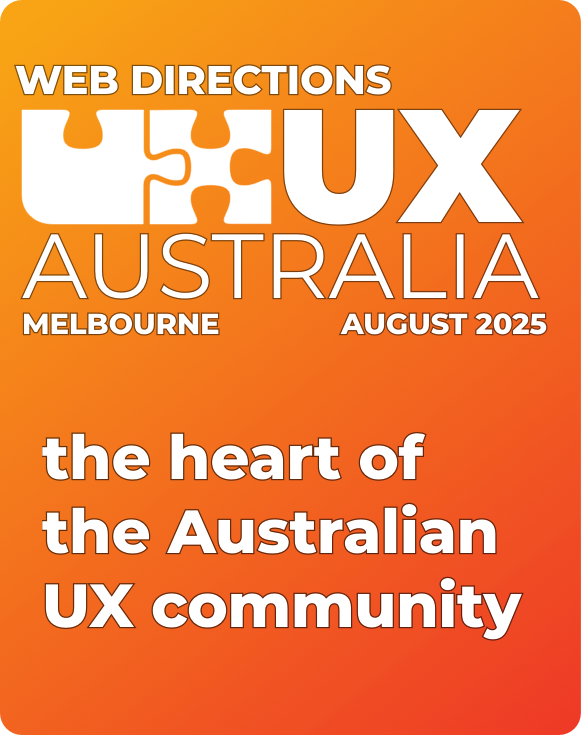
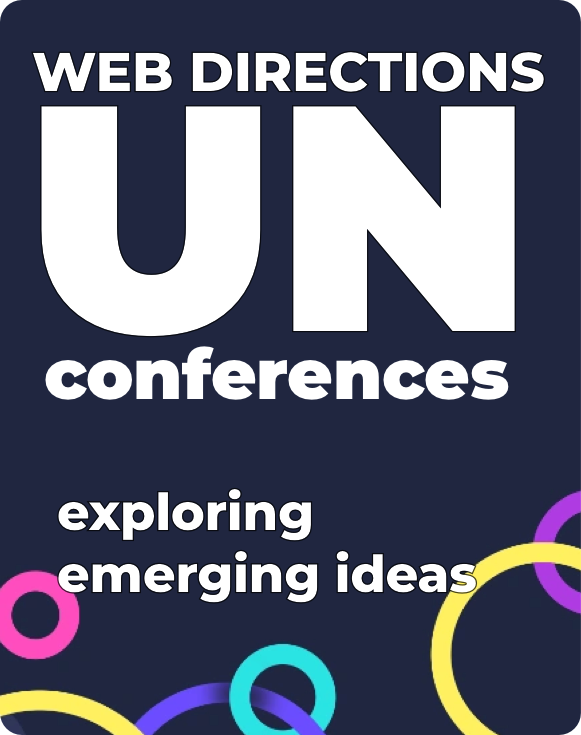

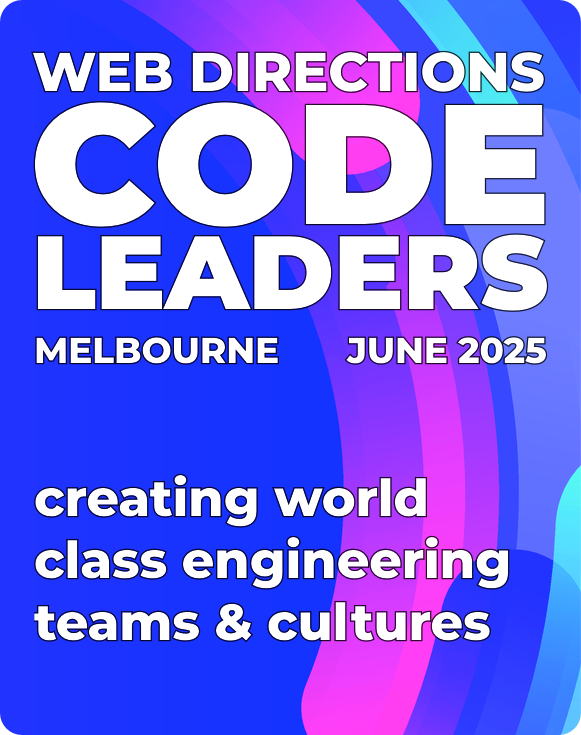
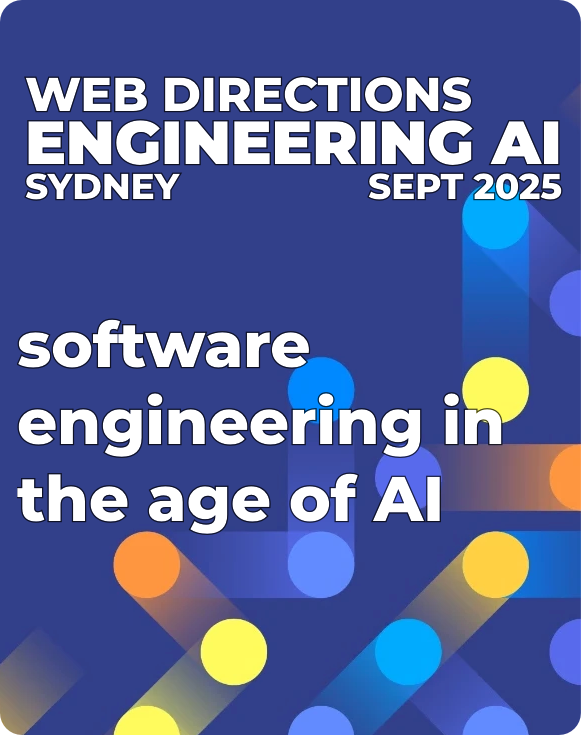
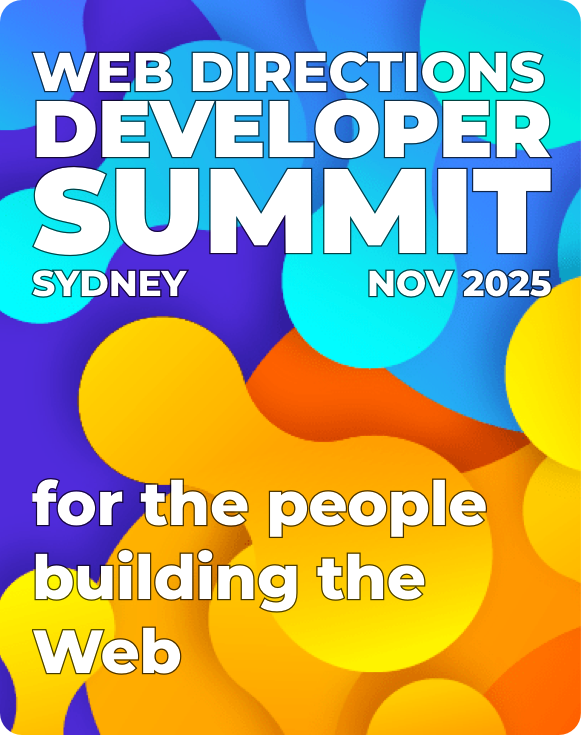

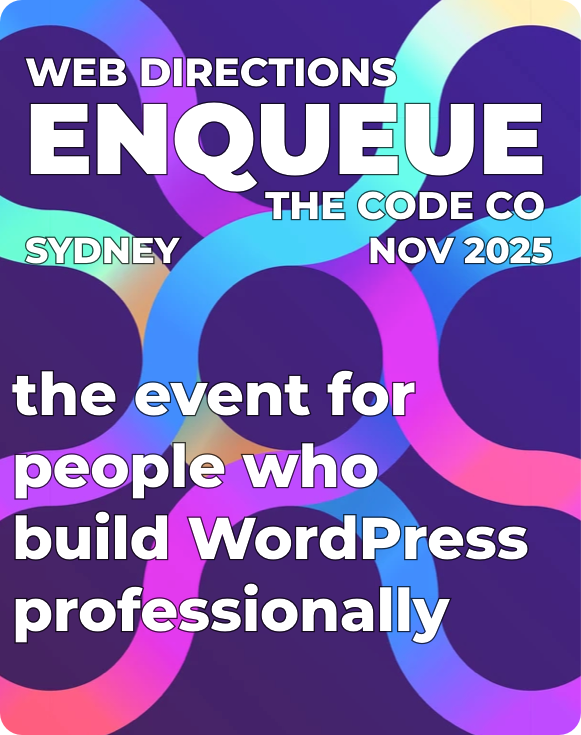
If you'd like to put your hand up to speak at Developer Summit or one of our other events in 2025, we'd love to hear from you. CFPs are open now, closing June 2025
Read all the details about what we're looking for and what we offer speakers.
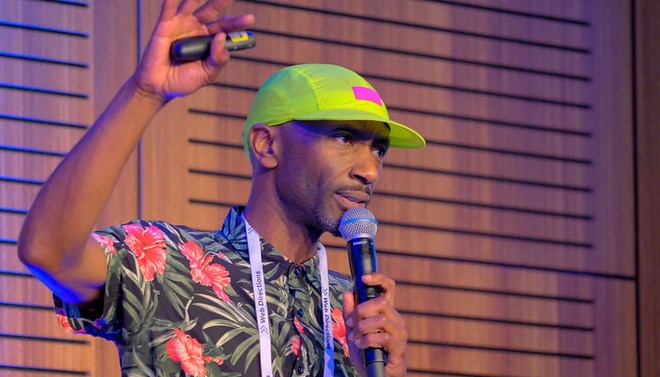
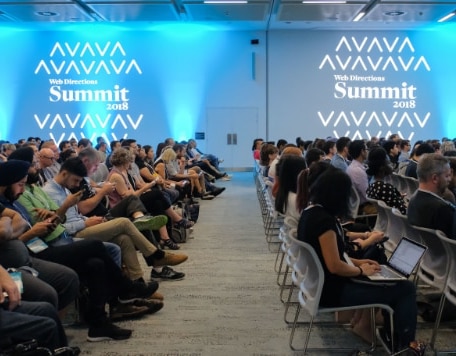
Dev Summit has been run under various names since 2006–including Web Directions South, Web Directions Summit, and now Web Directions Dev Summit, to reflect our focus on front end development.
Watch past conference presentations from many of our conferences on our streaming platform, Conffab.
Want to keep up to date with news about Developer Summit? Let us know below and we'll email you as things develop.
Attend Dev Summit by itself, or add our Next Conference to the mix.
Freelancers, juniors and not for profits save–see below for details
There's great bonuses for you and your organisation when you attend as a team
$1995
Includes
$1295
Includes
$795
Includes
$695
Includes
$495
Includes
$295
Includes
In-person conferences are fully catered (morning and afternoon tea and lunch) including any dietary requrements. Our conferences feature amazing coffee (and more). Code also features a reception.
Streaming passes include access to the conference livestream on our very own platform Conffab, including live captioning and chat, access to the stream on demand after the event and to the conference videos when they become available.
We know it's valuable to attend, to learn from our experts, and make connections in the industry. So, to make our events as affordable as possible, we have special pricing for a range of attendees.
If you're paying you're own way–contractor, freelance, consultant, independent–whatever you might call yourself use the code freelancedevsummit25 when you register, and pay just $995, and just $395 for a streaming pass with the code freelancedevsummit25streaming
If you work in education–as an educator or otherwise for an educational institution, then you'll pay just $995 with the code edudevsummit25, and just $395 for a streaming pass with the code edudevsummit25streaming
To encourage teams to send juniors to our events, we have special pricing for early career professionals. Use the code juniordevsummit25 and you'll pay just $995, and just $395 for a streaming pass with the code juniordevsummit25streaming
As a not for profit, register with the code nfpdevsummit25, and pay just $995, and just $395 for a streaming pass with the code nfpdevsummit25streaming
Over the years we've had many many teams attend our conferences together–treating it like an offsite, with amazing speakers, coffee, and more. Some come back year after year, so we're keen to make it really worth your while to attend together.
So here's a range of bonuses for groups of 5 or more from the same organisation. Drop us a line [info@webdirections.org] for more details or to register.
bonuses for your teamThe more who come, the more you get |
Teams of 5 or more |
Teams of 10 or more |
Teams of 20 or more |
Teams of 30 or more |
Ticket Upgradeseach attendee gets Conffab Pro as a bonus |
||||
Bonus Web Directions Next Tickets |
1 Next Ticket |
2 Next Tickets |
4 Next Tickets |
6 Next Tickets |
Awareness Level Partnership | ||||
Presence Level Partnership |
Keen to reach hundreds of the leading web engineers in the country? We bring them together in one place, fuel them with coffee and amazing talks and reignite their excitement.
We work closely with our partners and their technologies to deliver world leading online conferences. Contact us to talk more about how we work can work with you to help you be even more awesome.
With free and paid levels, keep up to date with all that's happening in our industry at your own pace.

John Allsopp has been working on the Web for nearly 30 years. He's been responsible for innovative developer tools such as Style Master and X-Ray, and his ideas formed the foundation for Typekit, now Adobe Fonts, and the entire concept of Responsive Web Design. He's spoken at numerous conferences around the World and delivered dozens of workshops in that time as well.
His writing includes several books, including Developing With Web Standards and countless articles and tutorials in print and online publications.
His "A Dao of Web Design" published in 2000 is cited by Ethan Marcotte as a key influence in the development of Responsive Web Design, who's acclaimed article in 2010 begins by quoting John in detail, and by Jeremy Keith as "a manifesto for anyone working on the Web".
John brings his deep knowledge of and passion for the web and all things digital to every aspect of Web Directions.
Co-founded and now run by John Allsopp, Web Directions has for nearly 2 decades years brought together leading developers, engineers, visual, IxD, UX and product designers, Art and Creative Directors, product managers indeed everyone involved in producing web and digital products to learn from one another, and the World's leading experts across this vast field.
We spend our lives thinking about what comes next, keeping up with trends in technology, practices and processes, and filtering the hype, to make sure you don't miss trends that matter, and don't waste time on hype that doesn't.
We promise attending one of our events will leave you significantly better versed in the challenges you face day to day, and in solutions for addressing them.
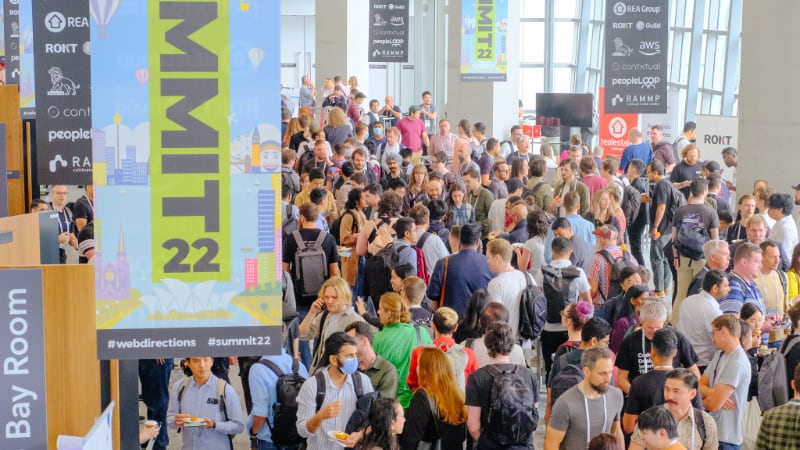
For over a decade, we've worked hard to create inclusive, fun, inspring and safe events for the Web Industry.
As part of our commitment to these values, we've adopted a code of conduct for all involved: ourselves, our speakers, our partners and our audience.
If you have any concern or feedback, please don't hesitate to contact us.